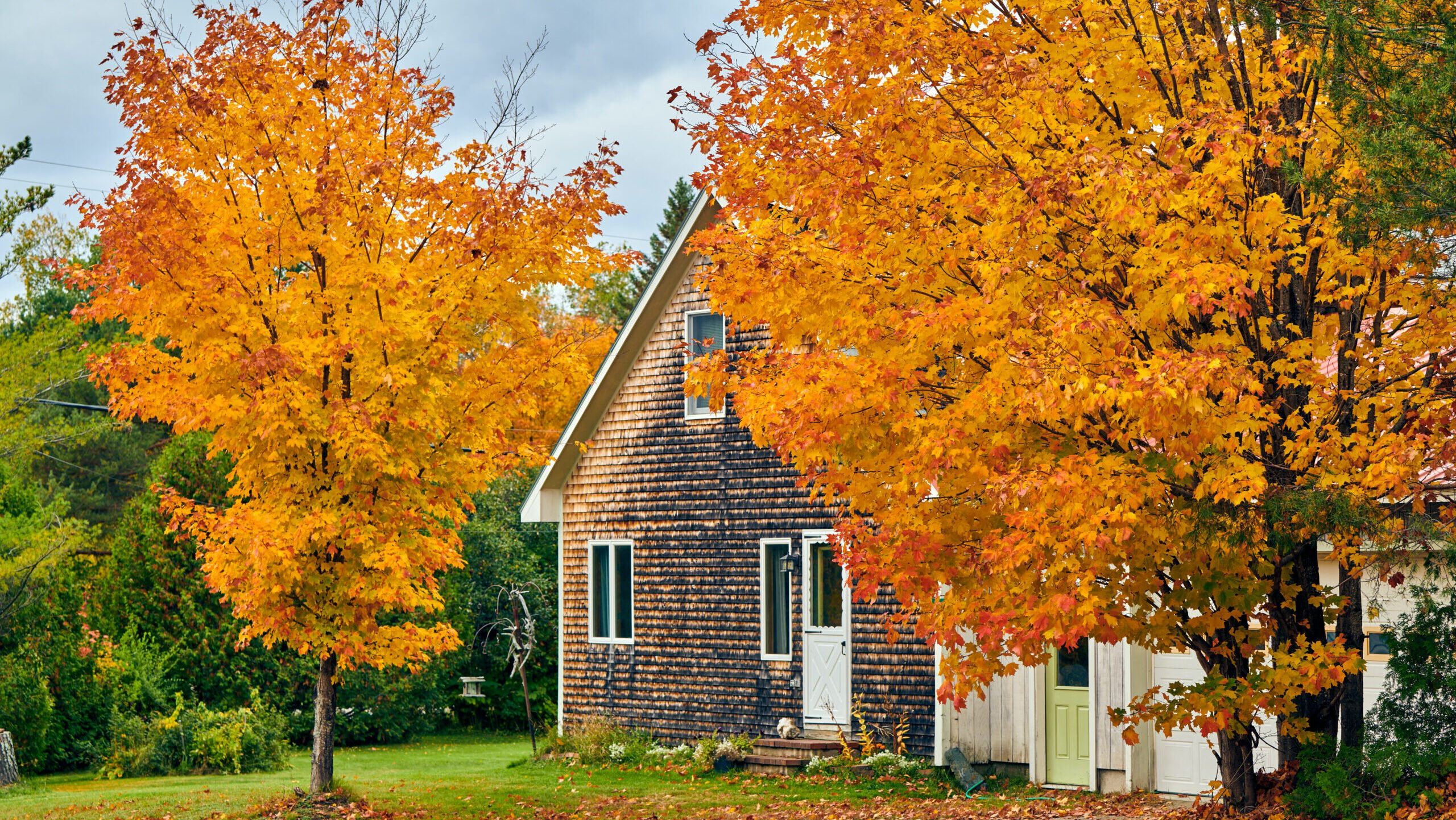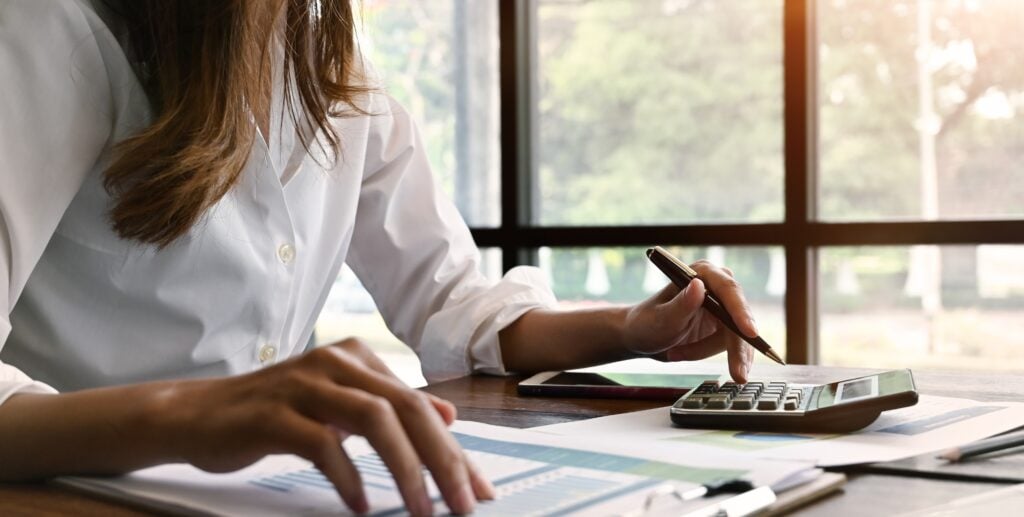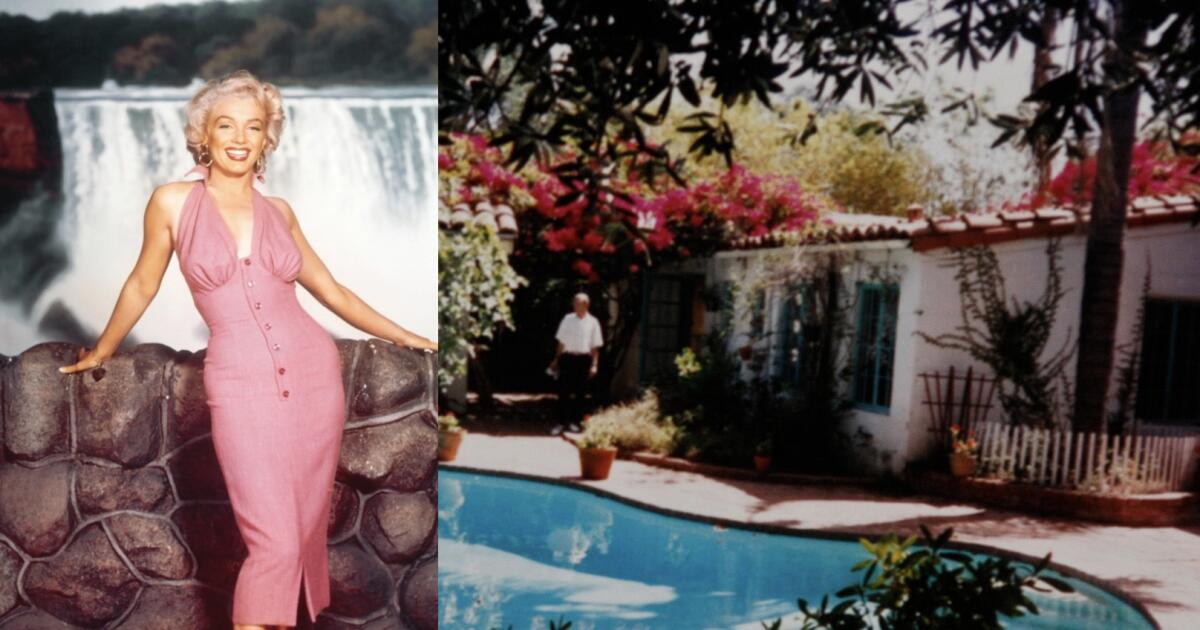If you’ve ever dreamed about escaping to the woods in Gatlinburg, TN or having a cozy place to unwind in Lake Tahoe, CA, chances are you’ve pictured yourself in a cabin. But what exactly makes a home a cabin, and is it the right fit for you?
In recent years, the term “cabin” has been used loosely to describe everything from rustic, off-grid shelters to modern, luxury escapes. But by definition, it means a small wooden house in a remote or natural setting.
Let’s take a closer look at what a cabin is, the different styles you’ll find, the pros and cons of owning one, and what you can expect to spend if you’re thinking about buying or building.
In this article:
What is a cabin?
Cabin types
Pros and cons of cabins
Buying vs. building a cabin
Cabin vs. house
FAQs
What exactly is a cabin?
A cabin is usually a rustic-style home tucked away in a rural or wooded area. When most people think of a traditional cabin, they imagine log walls and stone fireplaces, but cabins can also be built with brick, timber, or other natural materials.
Many people use cabins as vacation homes or weekend retreats, while others live in them year-round. They’re especially popular for anyone who loves the outdoors, whether it’s hiking, fishing, or simply enjoying a slower pace of life.
Different types of cabins
Not all cabins look the same. Here are a few of the most common styles you’ll come across:
- Full scribe cabin: Built from large logs stacked tightly together to form strong, seamless walls.
- Post and beam cabin: Uses vertical logs to support the other logs laying in the opposite direction leaving room for creative designs inside.
- Chink log cabin: Easily recognized by the plaster or mortar filling between each log. This plaster fills every gap, sealing the logs together perfectly.
- A-frame cabin: With its steep A-shaped roof, this style is great for shedding snow, rain, or any other debris.
- Modular cabin: Include elements made from prefabricated kits that can be transported and assembled almost anywhere.
- Hybrid cabin: A mix of different designs and materials that results in a unique, one-of-a-kind home.
What are the pros and cons of a cabin?
As with any type of home, a cabin comes with certain advantages and disadvantages worth considering before you decide to move forward on a cabin investment. Here are a few pros and cons to consider.
Pros of cabins
- Second source of income: If you already have a primary residence elsewhere, your cabin can provide steady income when you’re not using it.
- Room to breathe: Cabins usually come with a spacious lot, giving you more privacy and outdoor space from other guests.
- Simple living: Life in a cabin tends to feel more peaceful and less rushed, which is perfect if you’re craving a slower lifestyle.
Cons of cabins
- Fewer modern amenities: Some cabins, especially older ones, may not have the latest upgrades and features. Older cabins might also come with a floor plan that doesn’t function all that well in everyday life.
- Upkeep and repairs: Natural materials and remote locations can mean higher maintenance costs. An older cabin might also be equipped with an aging HVAC and plumbing system that can be costly to fix if they stop working.
- Distance from town: While this can be enticing for some people, being far from stores and hospitals or having no cell service can be inconvenient in an emergency. Potentially requiring you to walk miles to find someone else who can help you out.
- Insurance options: Many home insurance providers don’t cover cabins making securing insurance hard. It’s important to do your research and find a provider that will give you the insurance coverage you need.
Building vs. buying a cabin
When it comes to owning a home, one of the first decisions you’ll face is whether to buy or build a house and the same dilemma exists for cabins.
Cost to build a cabin
Building a cabin from scratch gives you complete control over the design, but the price can vary. Most small to mid-sized cabins cost between $62,500 and $87,500 to build. Materials like wood and stone can shift in price, so it’s smart to keep an eye on the market before starting construction.
Cost to buy a cabin
Buying a cabin is often the simpler route. Depending on size, location, and features, cabins typically cost $25,000 to $225,000. Modern cabins with upgraded finishes usually cost more, but they can also generate higher rental income if you plan to use the property as an investment giving you the chance to make your money back over time.
Cabin vs. house: What are the differences?
While cabins and standard houses both provide shelter, they offer very different lifestyles.
- Materials: Traditional homes often use vinyl or other manufactured siding, while cabins lean toward raw wood and stone.
- Location: Houses are usually built near cities and suburbs, while cabins are most often tucked away in quiet, natural areas.
- Lifestyle: Cabins create a sense of retreat and simplicity, while houses are usually designed for everyday convenience.
Buying a cabin: Is it a smart purchase?
A cabin can be so much more than just a house. It’s a place to unwind, reconnect with nature, and create lasting memories. For some, it’s a peaceful full-time home, while for others it’s a relaxing getaway or even an income-generating rental.
If a cabin lifestyle is calling your name, take time to explore the options and weigh the pros and cons. With the right choice, your dream of cozy cabin living can become a reality.
FAQs: What is a cabin?
1. Can I live in a cabin year-round?
Yes. Many people live in cabins full-time. Just make sure the cabin has reliable heating, insulation, and utilities.
2. Do cabins hold their value?
Cabins can appreciate, especially if they are in desirable vacation areas. Value depends heavily on location and upkeep.
3. Are cabins good for rental income?
Absolutely. Cabins in tourist areas or near outdoor attractions often rent well, especially during peak travel season.
4. Is it cheaper to buy or build a cabin?
Buying is usually less expensive upfront, but building gives you the chance to design your dream layout.
5. Do lenders offer mortgages for cabins?
Yes, but some mortgage lenders consider cabins a specialty property. You may need to work with a lender who is familiar with financing rural or vacation homes.



















 English (US) ·
English (US) ·